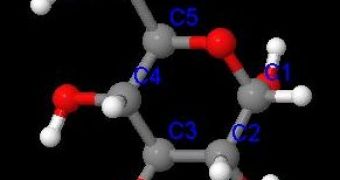Nowadays, people turn to nature in their attempt of transitioning from certain technological processes: glucose is going to replace oil to produce fuel and different chemicals. And apparently, plastics, too.
Glucose is the main energetic molecule used by plants and animals, the first sugar plants get by photosynthesis and the most common chemical in nature, and it is the basic building block for the molecules of starch and cellulose.
It may be abundant, but turning it into usable forms is still a technological challenge. Employing acid catalysts (catalysts are aimed to speed chemical reactions) to turn glucose into a basic element for plastics also produces large amounts of byproducts (like levulinic and formic acids).
Now, a team at the Pacific Northwest National Laboratory (PNNL) in Richland, Washington, has found an effective method of eliminating impurities from the plastics, urging the day when plastic will be made from trees, not from oil.
The team tested metal catalysts for turning glucose and other sugars into hydroxymethylfurfural (HMF), a molecule easy to turn in many chemicals and plastics. "Because glucose can be derived directly from cellulose and starch, it is nature's most abundant carbohydrate building block. HMF from renewable carbohydrates, such as fructose and glucose, is a versatile platform chemical from which hundreds of other chemicals can be produced." said co-researcher Conrad Zhang.
Metal chlorides (chromium, copper and other metals) containing two or more chlorine atoms turned 70% of glucose and nearly 90% of fructose into HMF. The best catalyst proved to be the chromium chloride (CrCl2), but the exact mechanism was unveiled.
The new method can process biomass (like trees, cornstalks and algae) into chemicals, plastics and fuels at just 100? C (212o F), much less than the 600? C (1,112? F), the temperatures required for oil processing. "A number of steps, including process development and optimization, have to take place before full-scale commercialization. It may take several years to reach that stage", said Zhang.
Plant-based plastics would further attenuate the world's current reliance on oil. "Direct utilization of cellulosic biomass for chemicals and fuel production is a challenging goal. Our results point to a potential process for the production of HMF from the most abundant renewable sources", added Zhang.

 14 DAY TRIAL //
14 DAY TRIAL //